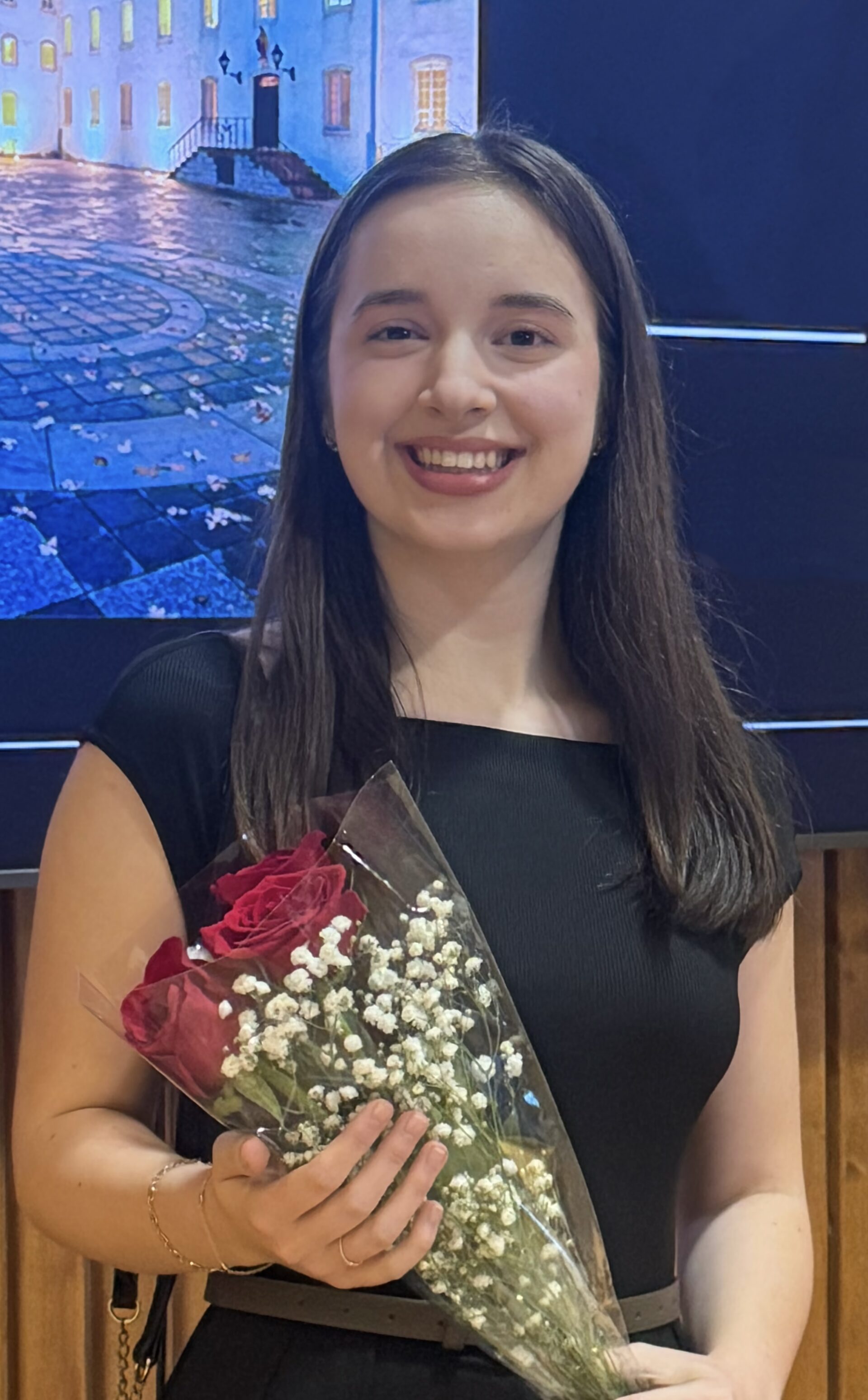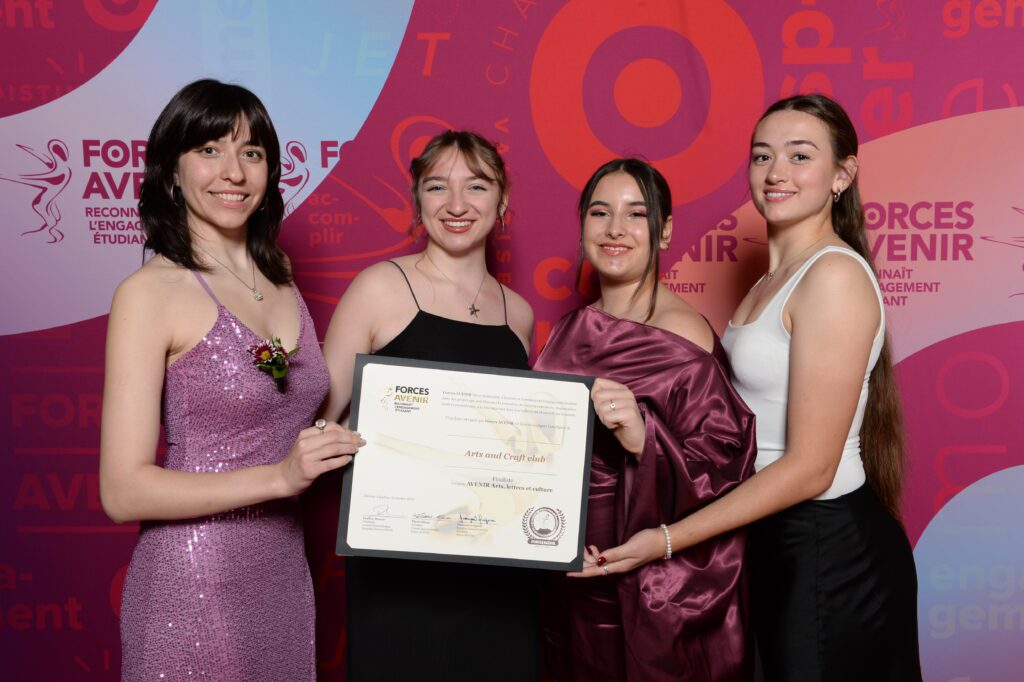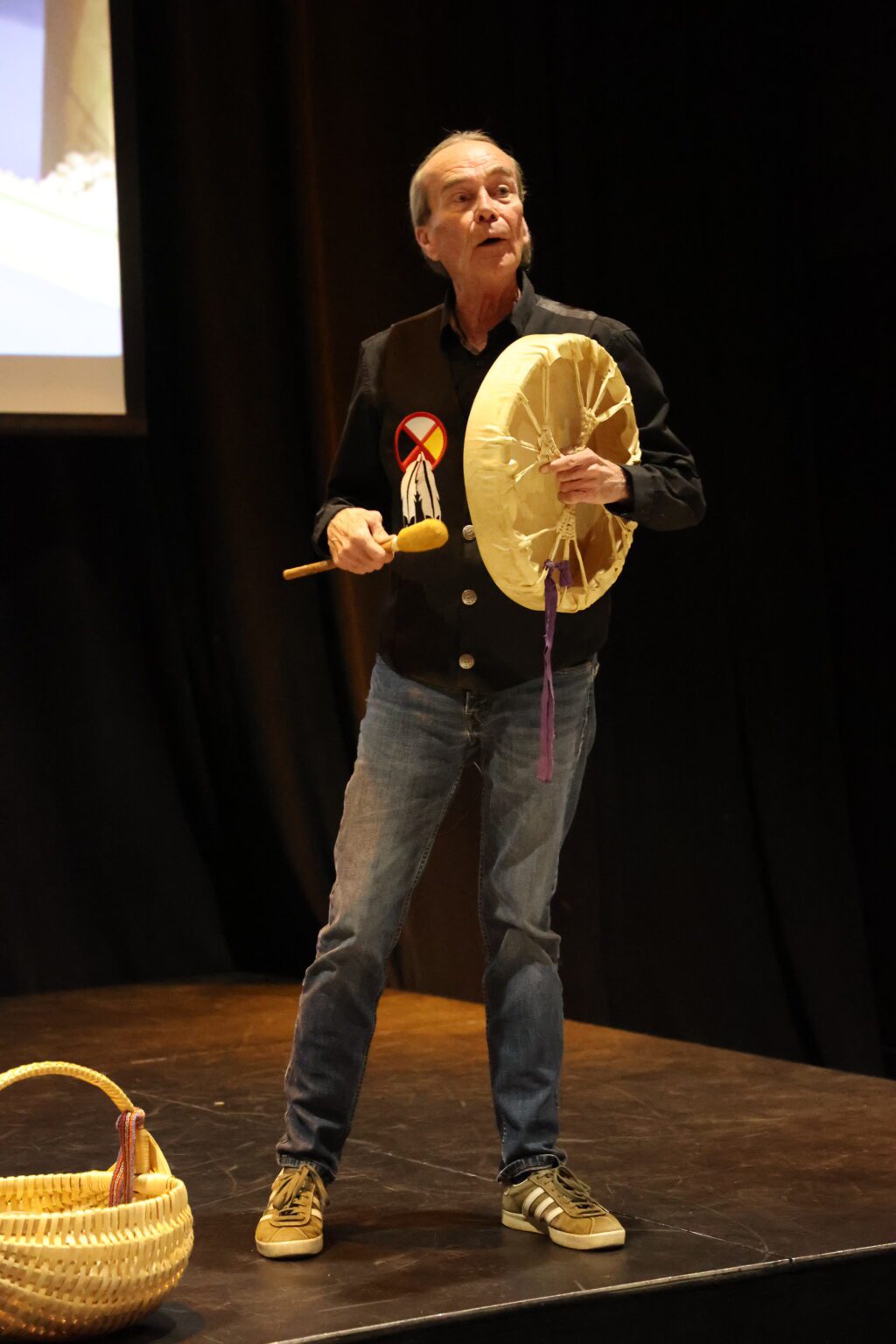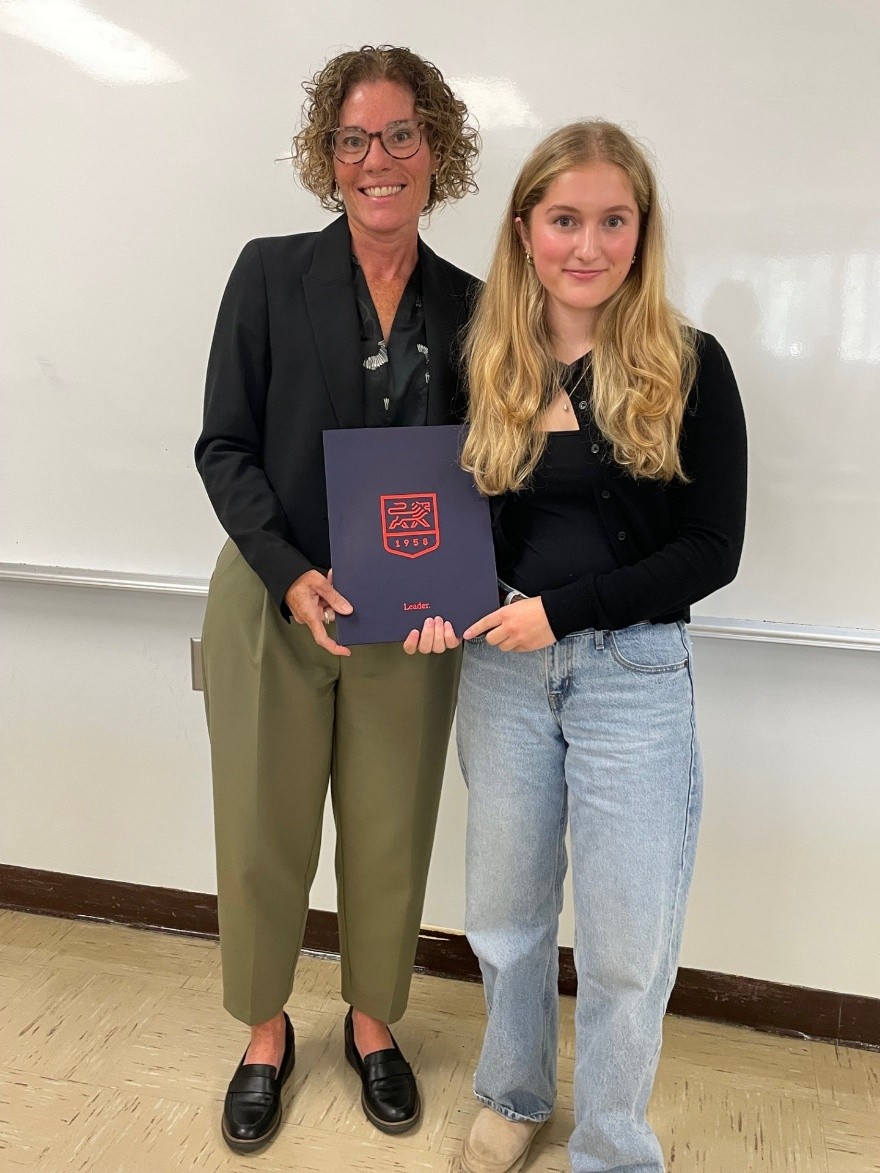Research • 27 October 2025
Sophia-Rose Brière’s Research Internship: The Human Side of Research

Sophia-Rose Brière, a Science student at CEGEP Champlain-St. Lawrence, recently completed a research internship on the theme of sustainable health under the supervision of Myriam Gauthier, Professor of Nursing Sciences at Université Laval and regular member of VITAM – Center for Sustainable Health Research; Carol-Anne Gauthier, Professor of Psychology at St. Lawrence, associate member of VITAM, and collaborator at the Chaire de recherche Relief en autogestion, santé mentale et travail (CRRSMAT); and Florence Côté, research professional at the Chaire and lecturer at Collège Mérici. During her two-month internship, for which she received the Fonds de recherche du Québec’s Bourse d’initiation à la recherche en santé – collégial, Sophia-Rose engaged in projects ranging from the integration of foreign-trained nurses into the Quebec healthcare system to mental and organizational health in workplace settings. Find out more about her experience below!
Reflecting on her interest in research, Sophia-Rose explained that she’s always been interested in “how theoretical knowledge is applied in real life,” and this specific internship particularly appealed to her because “it was applied to actual human beings,” as opposed to the experiments she has conducted in her science courses so far.
Her role as a research intern involved coding qualitative interview data, translating it into quantitative form through summary tables that highlighted recurring themes and common responses, and translating questionnaires from English to French. Additionally, she took part in research meetings with graduate students, completed ethics and methodology training, corrected interview transcripts, and reviewed bibliographic references.
More broadly, Sophia-Rose learned how “a research team works.” Her experience showed her that research is a highly collaborative process where team members contribute their unique expertise, working together to agree on methodologies and to synthesize data. Seeing the behind-the-scenes teamwork and the multiple decision paths involved made research feel more accessible and engaging.
This insight inspired a desire to continue exploring research in the future, especially its application to patient care, given her aspirations to become a doctor: “In medicine, you have to work with patients and find ways to satisfy and help them, so all the skills I have developed in this internship will help me both in research and in day-to-day consultations.”
Yet navigating theoretical frameworks and applying them to real and diverse human experiences was sometimes a challenge: “What surprised me most was how fast theory can become complex – there are a lot of grey areas. Unlike science experiments with clear answers, applying knowledge to people requires managing nuances… At first, interpreting interviews was hard, but I got used to it.”
Professor Myriam Gauthier emphasized the importance of having students like Sophia-Rose involved in research projects, highlighting that the questions Sophia-Rose asked made her team reflect on whether they were on the right track: “It encourages us to reconsider our project and explore perspectives we hadn’t fully considered before. This kind of reflection is crucial in research for developing scientific rigor and refining our arguments.” Florence Côté echoed the sentiment, stressing that students’ curiosity helps research teams consider angles that are sometimes overlooked after working on the same project for some time.
Carol-Anne Gauthier added that initiating college students into research is essential for developing their critical thinking: “Even if they don’t become researchers, understanding how research works makes them more informed practitioners and citizens. It fosters an attitude of questioning the status quo and engaging critically with society.”
Finally, Sophia-Rose summed up her internship in one word: “Eye-opening. It showed me a whole new side to research and provided a foundation I can build on throughout my academic and professional journey.”
This internship experience illustrates not only the tangible skills gained by a student but also highlights the vital human connections and collaborative spirit behind scientific knowledge creation, a reminder that research is as much about people as about data!

Student Life, Scholarships and Awards • 20 October 2025
Two St. Lawrence Projects Make it to Forces Avenir Finals

Guest Speakers • 17 October 2025
The Red Road to Recapture our Culture: A Talk with Tim Adams

Scholarships and Awards, Academics • 17 September 2025